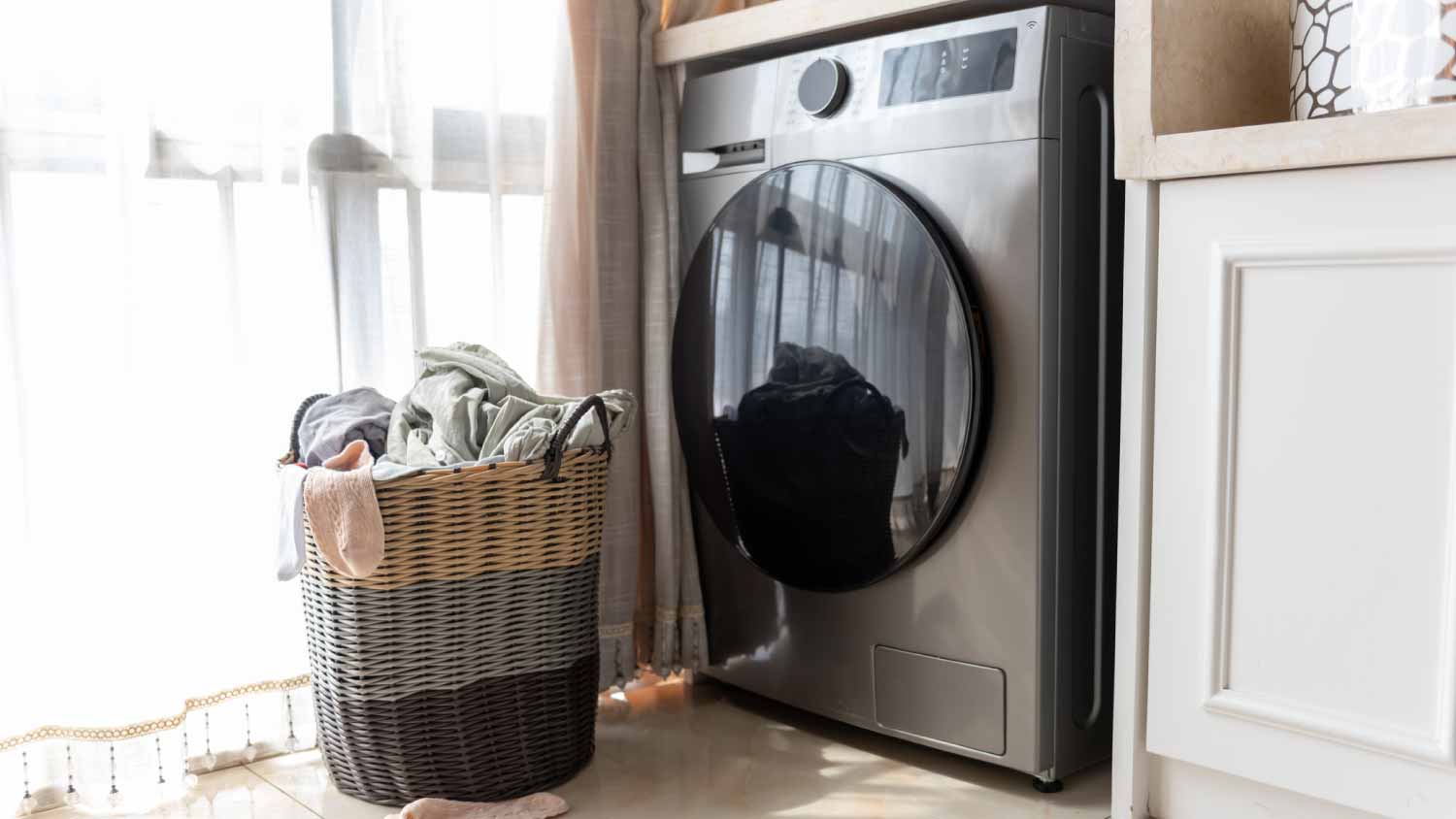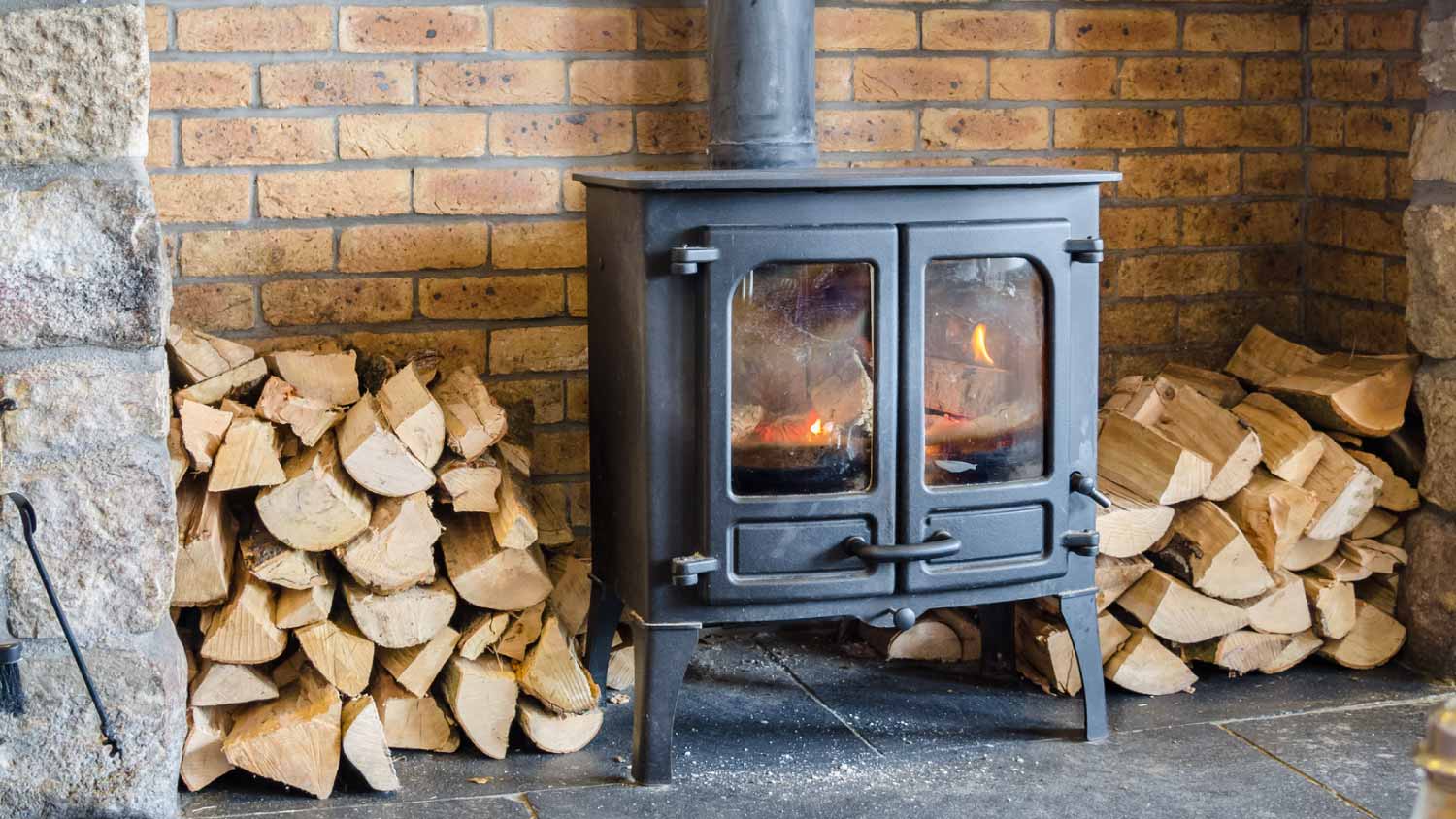6 Signs You Need Washing Machine Repair
Washing machine woes are often easy to identify—learn the top six signs your machine needs repair


There’s never a good time for a home appliance to malfunction. But when a washing machine acts up or stops working entirely, your entire household routine hangs in the balance. A washing machine that’s misbehaving doesn’t necessarily mean disaster is imminent, though.
However, you could be faced with an expensive replacement if you don’t address the problem sooner rather than later. Here are some red flags to look for with your washing machine.
1. There's a Lot of Noise
Unless you've accidentally left a handful of coins in a pants pocket, you shouldn't be hearing a ton of noise as your laundry tumbles in the dryer. Sometimes, all it takes is for you to rearrange the load of clothing so it’s more easily dispersed—keep in mind this is something you should only attempt to do mid-cycle in a top-loading washer, not a front-loading washing machine.
Another solution is to reposition the washing machine so it's more level on the floor. If you have it on a platform, that might need some adjusting, too. If this doesn't work, it could be a loose drum or motor mount. You can fix this yourself potentially, or hire a pro.
2. The Drum Isn't Filling Up With Water
You might have noticed a theme by now: The drum is an important component of your washing machine, and it needs to be fully operational if you want clean clothes. If you find the drum isn't filling up with water at the start of a cycle, there could be a number of reasons for this.
There might be a kink in the hose, or perhaps the water faucets have been turned off. There could also be a faulty water intake valve or a clogged washing machine filter. If you don't uncover the problem after inspecting these, it's time to call in a washing machine repair pro in your area.
3. The Drum Has Stopped Spinning/Agitating
This might be the result of an unbalanced load of laundry, meaning you’ve got too much in there or too little. It could also be a problem with the belts or the lid switch. You might be able to DIY a belt replacement, but a lid switch fix is better off in the hands of someone with experience.
4. Water Hasn't Drained From the Drum
At the end of every cycle, the drum should be drained completely of water. An uneven load of laundry could be the cause for blame once again. Be sure to check that your clothes aren’t wadding up and blocking the pump.
If that’s not it, it might be the water pump that’s acting up or a clog in the drain hose. You can easily drain the washing machine yourself before calling in a pro to take a closer look.
5. The Washing Machine Is Leaking Water
Your washing machine is supposed to be cleaning your clothing, not causing a flood. If you see puddles forming around your machine, you should stop using it until you find out what’s going on.
It is likely a washing machine hose issue or loose connection to the water supply, which should be a fairly easy fix for a professional. Be sure to mop up the water as soon as possible, as the moisture can seep into floorboards and lead to mold growth. The problem could be a clogged washer drain, which you can troubleshoot or you might need to call in a pro.
6. There's an Electrical Issue

If your washer is not turning on at all, make sure it is plugged in in the first place. Sometimes, an uneven load of laundry will cause the machine to shake hard enough to pull the plug on itself, so that’s a reminder to you not to over/underload your washer next time.
If the washer is indeed still plugged in, the power cord should go directly into the wall socket, not an extension cord or even a surge protector. The washing machine’s motor requires too much power for an extension cord to handle, and it might overheat and shut down. If this is the issue, you’ll have to let the machine cool down first before restarting.
If it’s not the power source, it might have to do with faulty wiring within your home or the machine itself. Do not try to figure this out yourself. Unless you are a licensed electrician, you should not be fiddling with any electrical wiring in your house.
Not only can you risk turning your washing machine woes into a much more expensive fix, but you can also cause serious personal injury. Again, this a good rule of thumb for any electrical appliance in your home, not just your washing machine.
What to Do If Your Washing Machine Needs Repair
The good news is that when a problem is addressed quickly, your washing machine can likely be repaired rather than purchasing a replacement.
However, it is important that you comply with all manufacturer’s guidelines for maintenance so you don’t void any warranties that include free or inexpensive repairs. Treat your washing machine well and it will stay a member of your household for years.



.jpg?impolicy=leadImage)

- Appliance Repair Companies
- Washing Machine Repair
- Dryer Repair
- Refrigerator Repair
- Dishwasher Repair
- Oven Repair
- Wood & Pellet Stove Repair
- Freezer Repair Services
- Wood Stove Services
- Gas Stove Repair
- Emergency Appliance Repair Companies
- Ice Maker Repair
- Gas Appliance Repair
- GE Appliance Repair
- GE Refrigerator Repair
- GE Dryer Repair
- GE Dishwasher Repair
- GE Washing Machine Repair
- Samsung Appliance Repair
- Samsung Refrigerator Repair
- Samsung Dryer Repair
- Samsung Washer Repair
- Samsung Dishwasher Repair
- Samsung Oven Repair
- Whirlpool Repair
- Whirlpool Refrigerator Repair
- Whirlpool Washer Repair
- Whirlpool Dryer Repair
- Whirlpool Oven Repair
- Maytag Appliance Repair
- Maytag Refrigerator Repair
- Maytag Washer Repair
- Maytag Dryer Repair
- Maytag Dishwasher Repair
- Kitchenaid Appliance Repair
- Kitchenaid Oven Repair
- Kitchenaid Refrigerator Repair
- Kenmore Appliance Repair
- Kenmore Dishwasher Repair
- Kenmore Washer Repair
- Kenmore Dryer Repair
- LG Refrigerator Repair
- Bosch Appliance Repair
- Kenmore Refrigerator Repair
- LG Appliance Repair Services
- GE Microwave Repair
- Electrolux Appliance Repair
- Electrolux Washer Repair
- Kitchenaid Dishwasher Repair Services
- Wood Stove Inspection
- Dishwasher Installation
- Trash Compactor Repair















